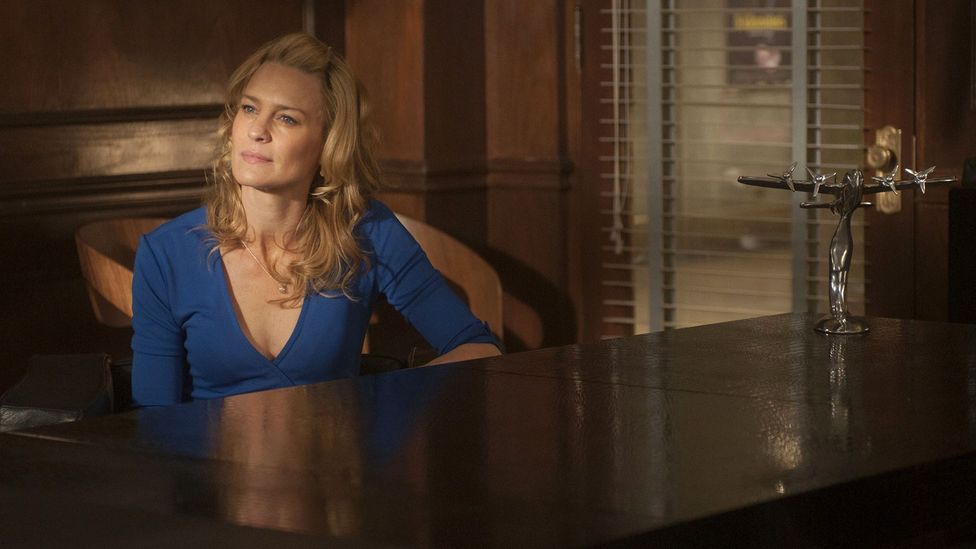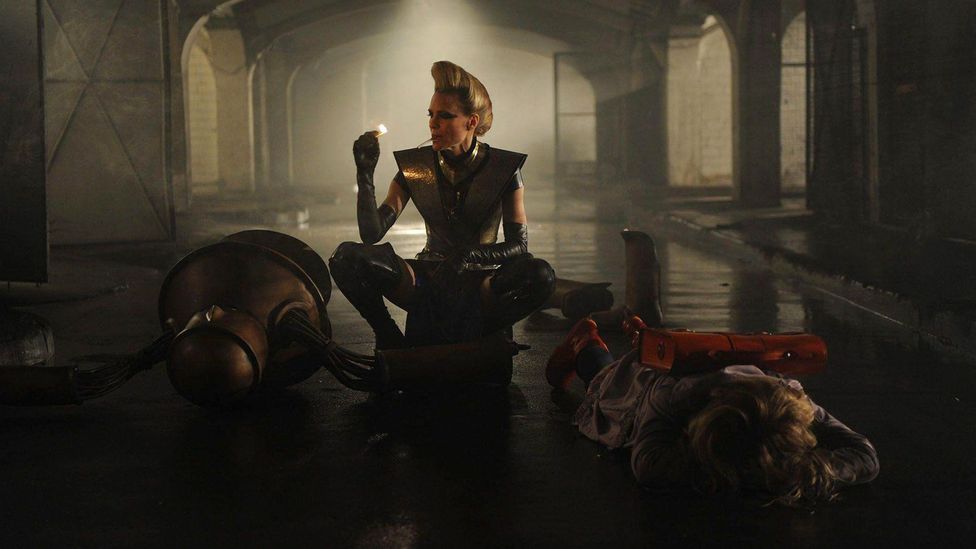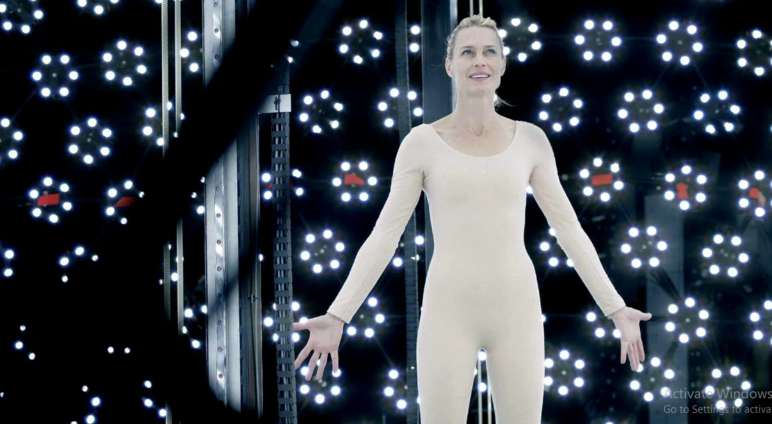With Hollywood all but shut down indefinitely due to strikes by the actors' union, SAG-AFTRA, and the Writers Guild of America, some powerful players have weighed in. George Clooney told CNN last week: "This is an inflection point in our industry". After the writers went on strike, Christopher Nolan told The Hollywood Reporter that "the business models don't work right now". And studio head Jeff Green said: "Things are changing quickly. Very soon this whole structure we all love so much will be gone".
Wait. Who? While the Clooney and Nolan quotes are genuine, Green is in fact a fictional character portrayed by Danny Huston in the little-known film The Congress. Released in 2013, it predicted the current crisis about the use of artificial intelligence in the industry, one of the most contentious issues in both strikes, with astonishing clarity and detail. In a scene that plays like a fly-on-the-wall report from Hollywood today, Green makes his prescient argument while trying to convince Hollywood star Robin Wright, playing an imaginary version of herself, to sign away the AI rights to her image. Written and directed by Ari Folman (best known for Waltz with Bashir, his 2008 animated Oscar nominee), the film foresaw problems including actors' loss of control over their images, the specific difficulties of contract negotiations over AI use, and the ripple effect of AI duplicating real people. 
Robin Wright plays a fictional version of herself as a 44-year-old star facing industry sexism – who is made a tempting but problematic offer (Credit: Alamy)
The Congress isn't the only fiction with sharp futuristic vision on this subject. In 2015, in the Netflix animated series BoJack Horseman, the producer Lenny Turteltaub tells BoJack he wants to scan him to use his AI replica in case BoJack becomes too difficult while playing the lead in the movie Secretariat. In the end, Turteltaub likes the scanned performance better and uses it without BoJack's knowledge. In the Black Mirror episode Joan is Awful, which premiered on Netflix last month, Salma Hayek Pinault plays a version of herself who sells her AI rights and finds she has no control over her image anymore.
The most chilling moments
But no other fiction came as early or with more chilling specificity than The Congress. The fictional Robin has some reason to take the studio's deal, which unlike real-life proposals (so far) includes the demand that she never act again. She has been labelled unreliable and difficult, and at 44 has aged out of the kind of roles that made her famous. Blurring fiction with Wright's actual career, and speaking to a fear that many actresses have of turning 40, Green tells Robin, "I want Buttercup from The Princess Bride, Jenny from Forrest Gump" – younger versions of the actress, looking like she did playing those famous roles in her 20s. AI will allow him to appropriate and repurpose her younger self.
Robin resists, saying "I don't want somebody else deciding" on her AI's roles. The dispute over who controls actors' digital images is among the most volatile element of the actors' strike, with differing claims from each side. SAG-AFTRA's head of negotiations, Douglas Crabtree-Ireland, has said that studios want to scan background actors' images and use them without consent for perpetuity. However, a spokesperson for AMPTP, the group representing the studios, said the scans can only be used for the project in production, with consent.
Another eye-opening scene in The Congress addresses the complexities that AI poses for actors even more directly. Robin's lawyer warns her that a contract has to specify how her image will be used. He successfully negotiates a no-porn clause but has to give in on sci-fi. As a result, to her endless regret, in the future her AI image stars in a tacky action franchise that includes the movie Rebel Robot Robin, her image whooping with glee as she rides a bomb as in Dr Strangelove. 
The film shows Robin's AI replica starring in a tacky action film Rebel Robot Robin, among other things (Credit: Alamy)
The Congress was partially based on Stanislaw Lem's 1971 sci-fi novel The Futurological Congress, but the Hollywood AI plot, which takes up roughly the first third of the film, is entirely Folman's. After Robin is scanned – in a remarkable performance, Wright stands inside a glass globe filled with lights and scanners and goes through emotions from sadness to laughter – the film leaps 20 years ahead and becomes fully animated, with Robin entering a boldly-drawn world of primary colours. The story begins to echo Lem's vision of a hero who visits a conference where hallucinogenic drugs in the water make him question reality. Here, the animated Robin is set to speak at a conference as a prime example of an AI movie star.
Even as the film shifts to focus on the broader issue of fantasy vs reality, though, Folman predicts further into Hollywood's future. Now the animated Green says movies themselves are about to be eliminated, replaced by a chemical that will allow users to experience life as if they were their favourite actors like Robin. The script writers and animators who are creating the very world Robin and Green are in will lose their jobs to AI, he says, reflecting yet another potent, real-life fear.
The Congress tells us that it was entirely possible to have seen the AI crisis coming. If only both sides on Hollywood's faultline today had paid more attention to that obscure little film from a decade ago.
Latest Stories
-
Price of LPG per kilogramme constitutes 22% of taxes – LPG Marketers Association
35 mins -
Nigeria appoint Finidi George as new Super Eagles boss
1 hour -
Elevating Ghana’s creative industry: A blueprint for competing with Nigeria and South Africa
2 hours -
Poor finishing a problem for Asante Kotoko throughout the season – Prosper Ogum
3 hours -
Samini teams up with Francis Osei for ‘Sticks N Locks’ EP
3 hours -
Government should resource record labels – Seven Xavier
3 hours -
I need majority in parliament to successfully complete my term – Akufo-Addo pleads
3 hours -
Next NDC government will not recognise illegal contracts signed by current administration – Sammy Gyamfi
3 hours -
Premier League clubs vote in favour of spending cap plans
4 hours -
Nigeria’s fuel crisis brings businesses to a halt
4 hours -
King Promise impresses fans at sold out show in Singapore
4 hours -
Ejisu by-election to proceed after plaintiff withdraws injunction application
4 hours -
CSOs and NGOs unite to push for priority demands at INC-4
4 hours -
Fuel tanker bursts into flames on Kumasi-Accra highway
4 hours -
Security is tightened ahead of Ejisu by -election
4 hours

